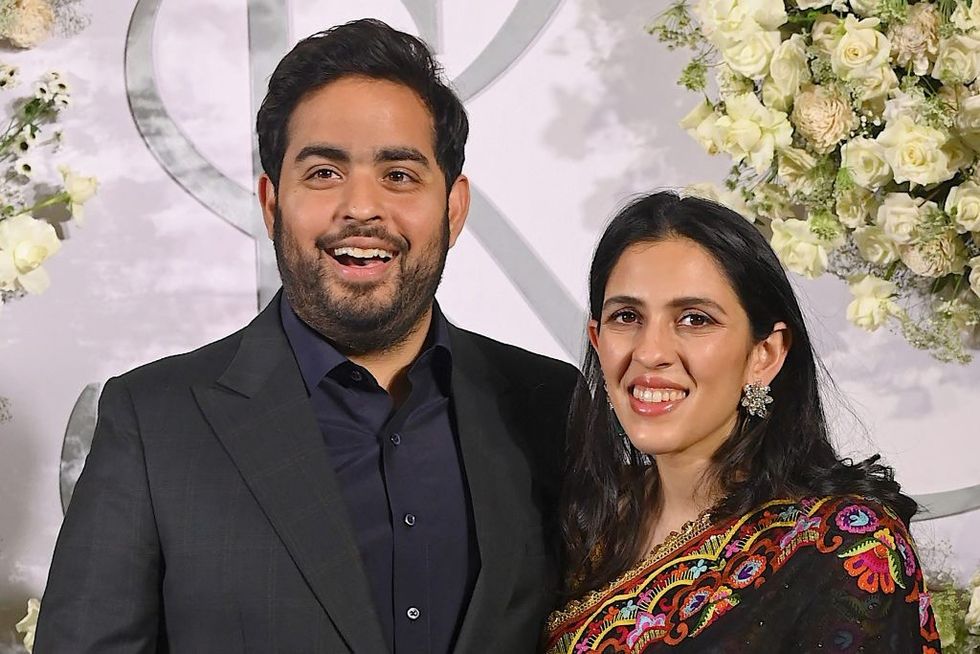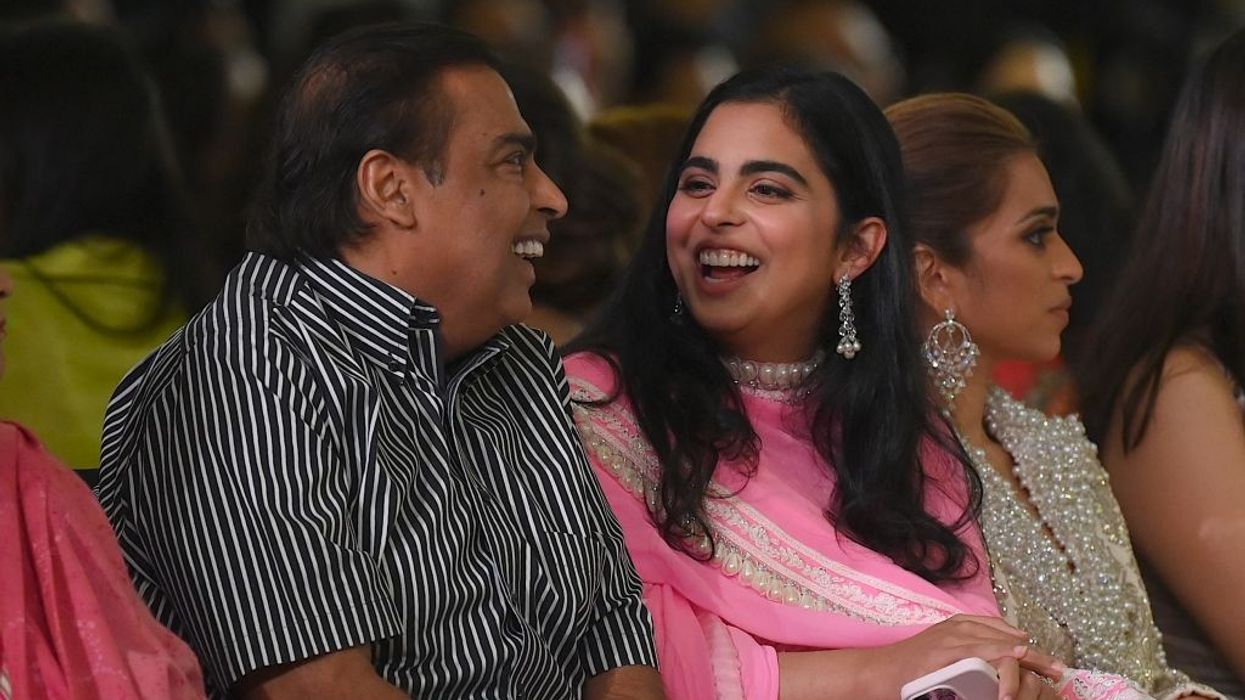ASIA'S richest man Mukesh Ambani has begun executing a succession plan for his $200-billion (£159.08 bn) energy-to-technology conglomerate Reliance Industries.
He appointed his three children - Isha, Akash, and Anant - to the board of the company which he will continue to chair for five more years.
Till now, the three children have been involved only at operating business-level.
The board of Reliance met ahead of the company's annual general meeting to approve the appointment of twins Isha and Akash as well as Anant, as the "non-executive directors of the company," the firm said in a stock exchange filing on Monday (28).
At the shareholders' meeting, Ambani said US Ivy League university-educated scions have "earned their stripes" and he saw "the flame" of his legendary father Dhirubhai shine in them.
The 66-year-old tycoon, who joined the board of India's most valuable company at the age of 20 years in 1977, said, "Today, I see both my father and me in Isha, Akash, and Anant. I see the flame of Dhirubhai shine in all of them."
He said he would mentor them for the leadership role.
"I shall continue to perform my duties and responsibilities as chairman and managing director for five more years, with greater vigour."

Ambani has been talking about succession since 2021. Last year, he handed over the baton of India's largest mobile firm Reliance Jio Infocomm Ltd to Akash, and identified retail business for Isha, 31, and new energy business for Anant, 27.
Jio Infocomm is a subsidiary of Jio Platforms, in which Meta and Google hold stakes and is still chaired by Mukesh Ambani. Reliance Industries Ltd is the parent of Jio Platforms.
Reliance also said Ambani's wife Nita has stepped down from the board to focus more on strengthening the firm's charity arm. She will continue to attend all board meetings as a permanent invitee in capacity as the chairperson of Reliance Foundation.
Reliance has till now had three main business - oil and petrochemicals, telecom and retail - one each identified for the three siblings. Recently, it has added financial services business, to which Isha has been appointed as a board member.
Akash, who attended Brown University, was part of a team that brokered multi-billion dollar investment in Jio Platforms, and also mentors the group's IPL cricket team. Isha, who graduated from Yale University and studied MBA at Stanford University, has been driving the expansion of Reliance Retail into new categories and geographies.

Anant, who also studied in Brown University, is involved with the recently launched new energy business that is supposed to help offset emissions from Reliance's mainstay fossil fuel business. An animal lover, he was the force behind building a zoo in Gujarat and is also said to take keen interest in corporate affairs and security detailing of his father.
Reliance said their "appointment will take effect from the date they assume office after approval by the shareholders."
While retail and digital services are housed in separate wholly-owned subsidiaries, the oil-to-chemical business is a functional division of Reliance. The new energy business is also with the parent firm.
The three businesses are almost equal in size.
Ambani was embroiled in a bitter inheritance dispute with his younger brother Anil after their father Dhirubhai died in 2002 without a will.
The brothers fought a bitter battle for control of Reliance Industries. After a protracted public spat, their mother brokered the split in 2005; Mukesh took oil and petrochemicals while Anil got telecommunications, power, and financial business.
But their fortunes diverged - while Mukesh rose to become the richest Asian, Anil pleaded "zero" net worth to a London court in 2020.
The brothers, however, seemed to have reached a detente in recent years. In 2019, Mukesh helped Anil to make a $77 million (£61.25m) payment that allowed him to escape jail. They also annulled a non-compete agreement, allowing Mukesh to re-enter the telecom business with Jio, and now a financial business unit.
A Stanford dropout, Ambani turned his father's textiles-to-petrochemicals business into India's most powerful conglomerate. Reliance's Jamnagar refinery is now the world's biggest single-site integrated refinery complex while Jio is the largest telecom firm with 450 million subscribers and its retail business is the biggest network of shops.
In July, Reliance reported weaker-than-expected quarterly profits, weighed down by its oil-to-chemicals arm even as its consumer-facing divisions posted healthy profits.
(Agencies)




